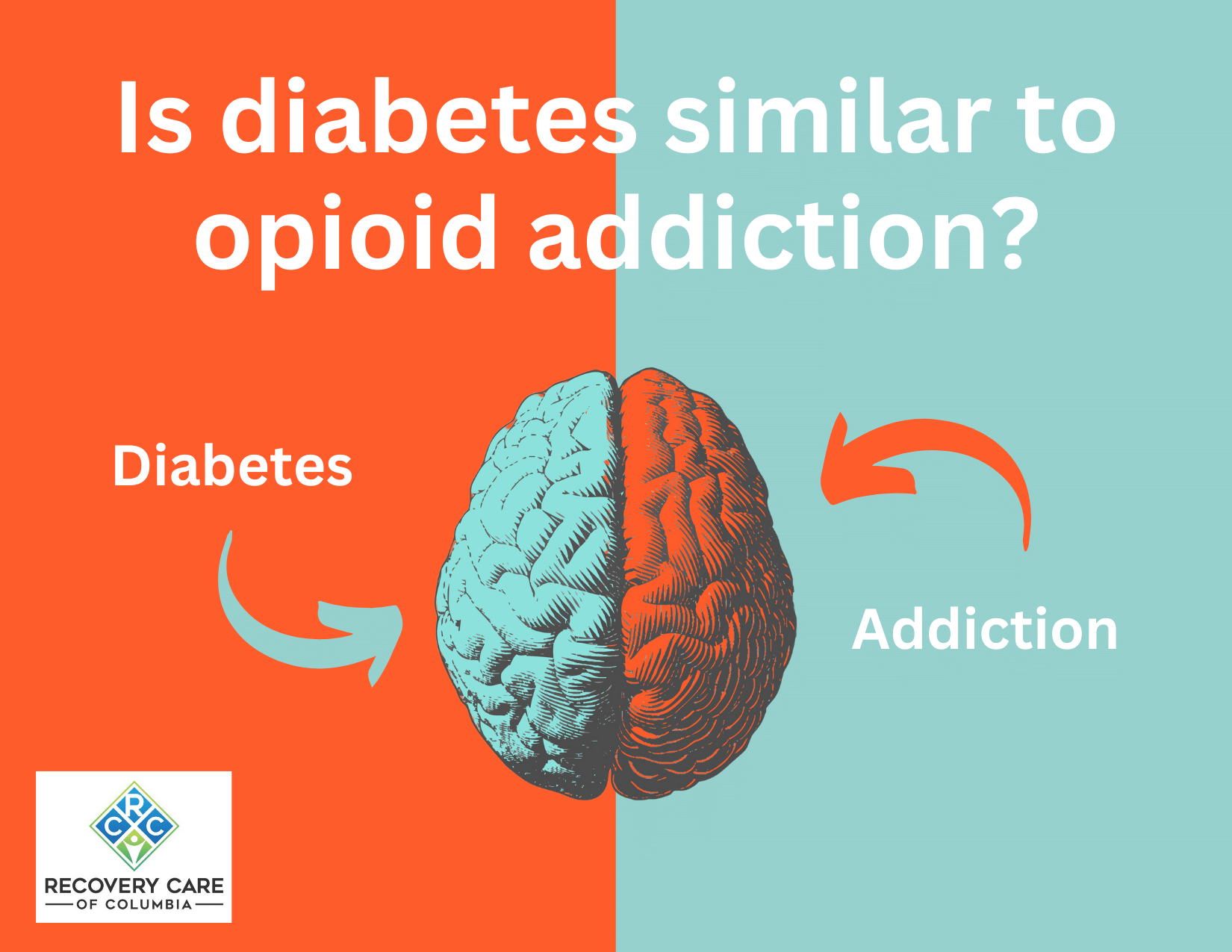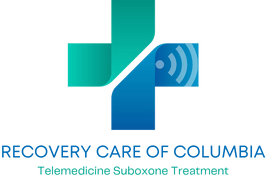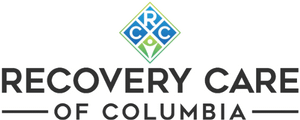Is Opioid Addiction Similar to Diabetes?

Opioid addiction and diabetes are both chronic diseases that can have a significant impact on a person’s health. Both conditions can lead to serious health complications, including heart disease, stroke, and death.
Here are some of the similarities between opioid addiction and diabetes:
- Both are chronic diseases.
- Opioid addiction and diabetes are both long-term conditions that require ongoing management.
- There is no cure for either condition, but there are treatments that can help to control the symptoms and prevent complications.
- Both can lead to serious health complications. If left untreated, opioid addiction and diabetes can both lead to serious health complications, including heart disease, stroke, and death.
- Both can be difficult to manage. Opioid addiction and diabetes can both be difficult to manage.
This is because both conditions require lifestyle changes and regular medication.
While both opioid addiction and diabetes can be expensive to treat, patients with TennCare insurance in Tennessee can get 100% of their addiction treatment and medications covered. The out-of-pocket costs for treatment of opioid addiction and diabetes can be fairly expensive. This is because both conditions require medication and may also require other treatments, such as counseling or therapy.
“TennCare Covers 100% of the Treatment Costs for Opioid Addiction in Tennessee”
Despite these similarities, there are also some important differences between opioid addiction and diabetes. For example, opioid addiction is a mental health condition, while diabetes is a physical health condition. Opioid addiction is also often characterized by cravings and withdrawal symptoms, while diabetes is not.
If you are struggling with opioid addiction or diabetes, it is important to seek professional help. There are many resources available to help you manage your condition and live a healthy life.
Here are some resources that diabetics may find helpful:
National Institute on Drug Abuse: https://www.drugabuse.gov/
American Diabetes Association: https://www.diabetes.org/
National Institute of Diabetes and Digestive and Kidney Diseases: https://www.niddk.nih.gov/health-information/diabetes
There’s No Cure for the Disease of Addiction
There is no cure for the disease of addiction, but there are treatments that can help to manage the condition and help prevent relapse and withdrawal:
- Suboxone – Suboxone is the brand-names for the combined drugs buprenorphine and naloxone. There are many generic versions of Suboxone available in both tablet and sublingual film forms.
- Therapy – Some people who get addicted to opioids do so as a result of trauma and/or needing to find relief from emotional pain. For others, opioids may provide a sense of euphoria they enjoy. Therapy often helps people uncover and resolve traumas and emotional pain that trigger their addictive behavior.
- Group Recovery – Group recovery is typically where people find a community of people who suffer from similar issues and addictions. They not only realize their problems are not unique, but can work with a sponsor using a 12-step program to help resolve these issues.
The main goal for treating opioid addiction is maintenance. There are currently three phases of treatment that explain from beginning to end what a person can expect when seeking treatment:
- Induction – This is the beginning phase of treatment where a patient makes the transition from taking opioid-based drugs to the much safer Suboxone (buprenorphine and naloxone). Why is Suboxone safer than taking opioids? See below.
- Stabilization – This phase is used to help the person regain feeling normal again, without having to take powerful drugs. This is typically a 2-4 week period.
- Maintenance – After stabilization, a person is typically feeling like they did before getting addicted to opioids. Maintenance is when someone has their addiction under control and are living a normal life again.
Why is Suboxone Safer than Taking Pain Pills or Other Opioid drugs?
While the answers may seem obvious, not everyone understands the benefits of taking Suboxone vs. opioids like hydrocodone, oxycodone, OxyContin, heroin or fentanyl.
- Suboxone is a combination of buprenorphine and naloxone. Buprenorphine is a partial opioid agonist, which means that it binds to opioid receptors in the brain, but it does not activate them as strongly as full opioid agonists like heroin or fentanyl. Naloxone is an opioid antagonist, which means that it blocks the effects of opioids. This combination of buprenorphine and naloxone makes Suboxone less likely to cause overdose than taking drugs.
- Suboxone is a prescription medication. This means that it is regulated by the FDA and is only available through a doctor’s prescription. This helps to ensure that Suboxone is used safely and effectively.
- Suboxone can help to reduce cravings and withdrawal symptoms. This can make it easier for people to quit taking drugs and remain sober.
- Suboxone can help to improve quality of life. People who take Suboxone often report feeling better physically and mentally. They may also have more energy and motivation.
Why Do People Get Addicted to Opioids in the First Place?
Opioids are a class of drugs that work by binding to opioid receptors in the brain. These receptors are involved in the perception of pain and pleasure. When opioids bind to these receptors, they produce a feeling of euphoria, or a sense of well-being.
This feeling of euphoria can be very addictive, and it is one of the reasons why people become addicted to opioids.
In addition to the feeling of euphoria, opioids also suppress the perception of pain. This can be very helpful for people who are in pain, but it can also lead to people taking more opioids than they need. This can increase the risk of addiction.
Other factors that can contribute to opioid addiction include:
- Genetics: Some people are more likely to become addicted to opioids than others. This is due to genetic factors that make some people more sensitive to the effects of opioids.
- Trauma: People who have experienced trauma, such as abuse or neglect, are more likely to become addicted to opioids. This is because trauma can lead to changes in the brain that make people more susceptible to addiction.
- Mental health conditions: People with mental health conditions, such as depression or anxiety, are also more likely to become addicted to opioids. This is because opioids can be used to self-medicate for these conditions.
If you or someone you know is suffering from the disease of addiction, get help. Recovery Care provides a 100% telemedicine addiction treatment program for anyone who lives in the state of Tennessee. All you need for treatment is a valid driver’s license or state-issued photo ID.
Get started today by clicking one of the following links:



